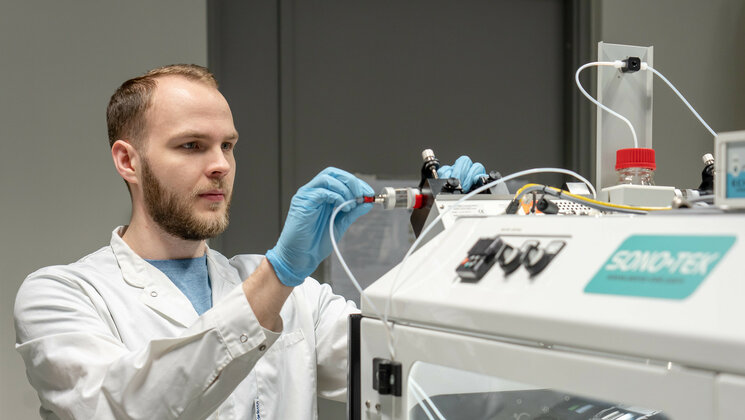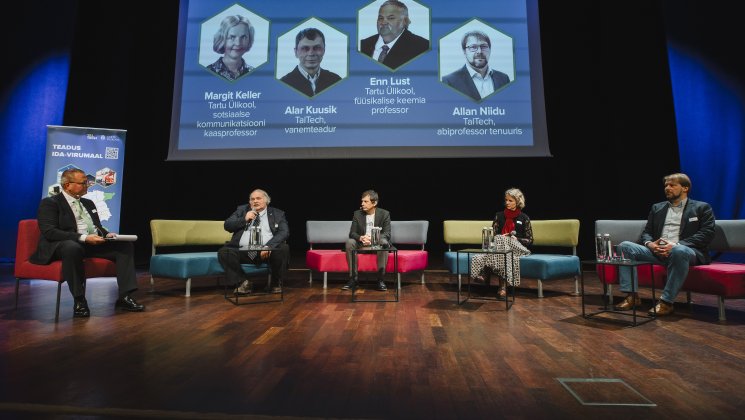Monitoring of the just transition processes in Ida-Viru County has started

Over the next six years, researchers from the University of Tartu and Tallinn University of Technology will study how Ida-Viru County transitions to a more sustainable economic model, what the region can evolve into, and how local decision-makers could best guide the transition.
The current structure of the population and business structure of Ida-Viru County primarily results from oil shale-based energy production or other high environmental impact industries. This affects the education, skills, attitudes and physical health of the working population. When the share of oil shale energy is reduced for a cleaner environment, also the aspect of social justice must be considered. The analysis and monitoring of the transition processes in Ida-Viru County, led by two universities, aims to identify opportunities for socio-economically more equitable transformation of the region and provide the necessary tools for the leaders of regional development.
The monitoring involves several themes: the transition-related vulnerability of Ida-Viru people and their innovation potential, labour force monitoring and forecasting, the health impact of the transition and the development of health services, the changing business models of enterprises and the adoption of technology-intensive innovation, and the governance of just transition.
The monitoring of the transition processes is coordinated by Margit Keller, Associate Professor of Social Communication at the University of Tartu, who says it is a unique long-term process that will not be “completed” by 2029 when the project ends. “The researchers aim to provide a comprehensive overview of the region to decision-makers shaping the development of Ida-Viru County and create a range of tools to monitor and guide future developments. In cooperation with the Estonian Qualifications Authority, for example, a methodology for monitoring and forecasting the region’s labour force, a health barometer, and a methodology for monitoring and assessing the viability of innovation will be developed as a result of the project,” Keller said.
The researchers aim to provide a comprehensive overview of the region to decision-makers shaping the development of Ida-Viru County and create a range of tools to monitor and guide future developments.
Monitoring of well-being and labour force

Triin Vihalemm, Professor of Communication Studies at the University of Tartu and leader of the research group for socio-economic well-being and labour force monitoring in Ida-Viru County, highlights the most critical research questions, “What is the (re)training readiness of Ida-Viru residents, what are their migration intentions, entrepreneurial spirit, attachment to the place of residence, attitudes towards the various development paths and the key intervention measures in the transition process? Educational institutions need these insights to design their training offers, entrepreneurs to assess the social drivers of the business environment, and policymakers to empower the region’s entrepreneurship opportunities and reduce social vulnerability.”
Health impact assessment

Societal changes have a direct impact on people’s health behaviour. The research team of Hans Orru, Professor of Environmental Health at the University of Tartu, will look at the health data of the region’s residents and their use of health services. “So far, the data show that people in Ida-Viru County are in poorer health than in the rest of Estonia: they have lower life expectancy, fewer healthy life years, and more chronic diseases, including asthma in children. Medical care is more difficult to access in Ida-Viru County than elsewhere in Estonia, and the Russian-speaking population in particular often lacks information on healthy lifestyles,” said Orru, explaining the complex situation in the region. During the study, the researchers will identify the weaknesses in Ida-Viru County’s healthcare system and compile a health barometer, which will allow further monitoring of health changes in the population of Ida-Viru region, forecast trends, and plan the necessary evidence-based interventions.
Conditions supporting the creation of new technologies

Researchers led by Kadri Ukrainski, Professor in Research and Innovation Policy at the University of Tartu, will explore in more detail the results of activities to enhance the knowledge intensity of the Ida-Viru economy. More specifically, Ukrainski will focus on what new technological niches are created during just transition and what stage of development they will reach. On the other hand, researchers are also interested in what factors, from people to regulatory frameworks and support, influence the development of these niches. According to Ukrainski, people elsewhere in Estonia do not know much about the development in Ida-Viru County. The project team will also help raise awareness about it, among other things.
Governance and changes in business models
The Department of Business Administration and Ragnar Nurkse Department of Innovation and Governance at Tallinn University of Technology will collaborate to monitor the just transition governance models and business development trajectories. Led by Merle Küttim, Assistant Professor at the Department of Business Administration, researchers will investigate which governance practices work best at different stages of just transition in the local context. The team will also seek to find out how to coordinate policies at different governance levels in a more comprehensive way. Their research into the development paths of Ida-Viru companies will assess opportunities to develop business models based on circular economy principles and analyse how they can be implemented.
The monitoring and analysing the transition processes in Ida-Viru County is part of a larger set of research and development activities carried out under the Just Transition Fund consortium established by Tallinn University of Technology and the University of Tartu. Researchers of the consortium will carry out a total of 22 research projects, which support socio-economic change in the region and meet the development needs of enterprises. The research is funded by the Estonian state and the European Union via the support measure “Support for increasing the knowledge intensity of business in Ida-Viru County: developing the provision of research capacity in Ida-Viru County for the creation of a research and development network”






